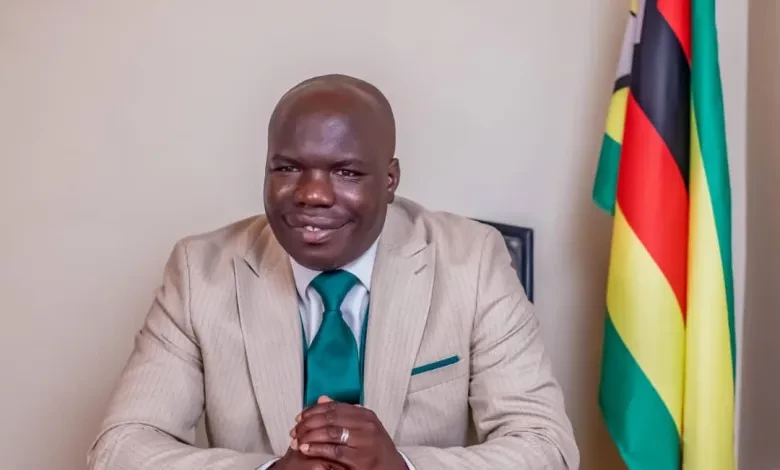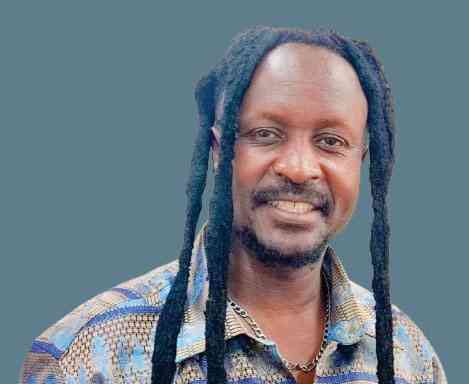
By Grant Moyo
Social entrepreneur and development practitioner Nomqhele Siziba is promoting sustainable youth and women socio-political, cultural, economic and environmental development through synergy effort and competent building.
Guided by her name, Nomqhele — a Ndebele word meaning “she who wears a crown” — Siziba is of the notion that her crown comprises the academic, professional and leadership opportunities at her disposal.
With that in mind, in her capacity as the executive director at Youth Invest, she promptly chose to dedicate a chunk of her life in service of the livelihoods of communities hailing from the southern part of Zimbabwe, more often than not in Matabeleland North.
Born in Bulawayo, Siziba studied at Matshayisikhova Primary School and Mtshabezi High School. She holds a Bachelor of Science Degree majoring in Criminology and Psychology from Monash University and a Bachelor of Arts in Applied Psychology for Professional Contexts (Honours Degree) from the University of South Africa. The vibrant social entrepreneur and development practitioner is a fellow of the Building Peace from Inside: Support Insider Mediation for Sustainable Transformation of Conflict program under International Visitor Leadership Program (IVLP) on Women and Entrepreneurship as well as Social and Economic Justice Activism Academy under Zimbabwe Coalition on Debt and Development.
Among her numerous professional qualifications and engagements include being a delegate at the One Young World Summit (United Kingdom) and at the Global Shapers Annual Summit (Switzerland). In 2018, Siziba established Youth Invest — a pro-youth and feminist-oriented organisation centered on synergy effort through collaborating with the public and private sector players and other non-governmental organisations at local, regional and international level.
“I had a very positive childhood and adolescent phase, my father forever encouraged me to be fearless and courageous in the pursuit of my dreams. One thing that stuck with me is his assurance that ‘I am enough’,” she said.
“He instilled a sense of pride in me as a brown skinned girl through a number of ways, chief among them was when he bought my sister and I black dolls.
- Chamisa under fire over US$120K donation
- Mavhunga puts DeMbare into Chibuku quarterfinals
- Pension funds bet on Cabora Bassa oilfields
- Councils defy govt fire tender directive
Keep Reading
“Since we also had a few white dolls and teddy bears, playing with the miscellaneous dolls made me understand the different racial identities and appreciate that as humans we are diverse. In addition to the dolls, my father bought us various toys like engineering sets, cars, chalk boards and tea sets.
“This was critical as it assisted me to appreciate that as a girl or young woman, I can be anything I want. Guided by the philosophy that ‘I am enough’, I can pursue a traditionally male dominated career or a female dominated one.”
Siziba said: “As a teenager, television shows that my father used to encourage me to watch assisted me to develop a strong sense of empathy for people and think of ways to assist them.”
“Particularly, a show which aired on ZTV, which was about inheritance laws, revealed how most women and their children are left stranded after the death of their husbands. This made me want to learn more about human rights and different ways to safeguard women, children and youths.
“During my tertiary education, I deepened my understanding of social and personal aspects of deviant behavior. I also developed keen interest in prevention of crime through engaging youths, women and men in productive and gainful activities.”
As a project lead under a United Nations Democracy Fund project titled Amplifying Youth Voices in Democratisation in Zimbabwe, Siziba increased the youths’ participation in civic and electoral processes in 2017.
Under the project the social entrepreneur and her team targeted youths in Bulawayo’s high-density suburbs. They mobilised 120 direct and 240 indirect beneficiaries, and facilitated for the establishment of 12 civic engagement clubs, each comprising of 30 members. The fellows underwent civic engagement capacity building, which saw youths engage with local councillors.
One key meeting was an interface between senator Joshua Malinga and Bulawayo City Council public relations officer, as well as councilors and officials.
Engagement was on advocating for disability friendly public buildings and other challenges faced by youths with disabilities, like access to quality education. Instilling awareness, the Civic Engagement Clubs saw youths gain more understanding on electoral processes and witnessed some of them actively participate in electoral processes as candidates.
Developing and directing organisational strategy, leading and managing the organisation and staff through resource allocation and performance reviews, as well as promoting awareness of the organisation to the target population groups and donor community, sums up Siziba’s pivotal responsibilities as the executive director at Youth Invest.
The organisation conducts community mobilisation and advancement of economic, social and cultural rights of young people and women. This procedure is fulfilled through cognition management and aptitude creation on the thematic areas namely ‘Business Leadership and Entrepreneurship’, Poverty and Sustainable Livelihoods, Gender Equity, Human Rights and Democracy, Technological Innovation as well as Environment, Tourism and Climate Change.
Amplifying Women’s Voices in the Covid-19 Response in Hwange is youth invest’s ongoing project which seeks to cascade values of democratic systems to communities at grassroots level.
Through its thrust on evidence-based advocacy, credible research and use of mainstream and new media platforms, the project tackles the issues of diminishing human rights, increase in gender-based violence and constitutional reversals in dealing with the Covid-19 global pandemic in Zimbabwe.
The project strategically positions Matabeleland North women to speak out against decades of marginalisation and consequent women’s rights abuses. Through advocating for a gendered Covid-19 response, the females are strengthening their voice against corruption.
In efforts to safeguard youths and women’s economic, social and cultural rights which continue to be threatened by the Covid-19 crisis, Siziba’s organisation is leveraging digital media platforms such as GoFundMe and Facebook, to raise funds to support marginalised communities of Chidobe and Sizinda, located under the Hwange Rural Council.
Youth Invest has purchased hygiene kits and food hampers for 30 households with an average of 8 family members each. Among the 240 beneficiaries are people with disabilities (PWDs) who were selected through targeted mobilisation to ensure the promotion of their food security.
Siziba said Promoting Rural Tourism Entrepreneurship in Victoria Falls is a United States embassy-supported project boosting the economic stability for young people and females involved in craft business in rural Victoria Falls, through capacity development, networking and access to markets. The project is tackling the gender gap reflected in Hwange district, whereby the majority of craft operators benefiting from the region’s tourism ecosystem are men.
Not only is Siziba dutifully steering the protection and advancement of social, economic and cultural rights for youths and marginalised communities, the development practitioner is further hyping the effective participation of young people in tourism, environmental conservation and natural resource governance.
- Grant Moyo is a prolific writer, innovative media personality, entrepreneur and a creative artist who is passionate about using his creative mind for the betterment of society. Follow him on Twitter: @TotemGrant










